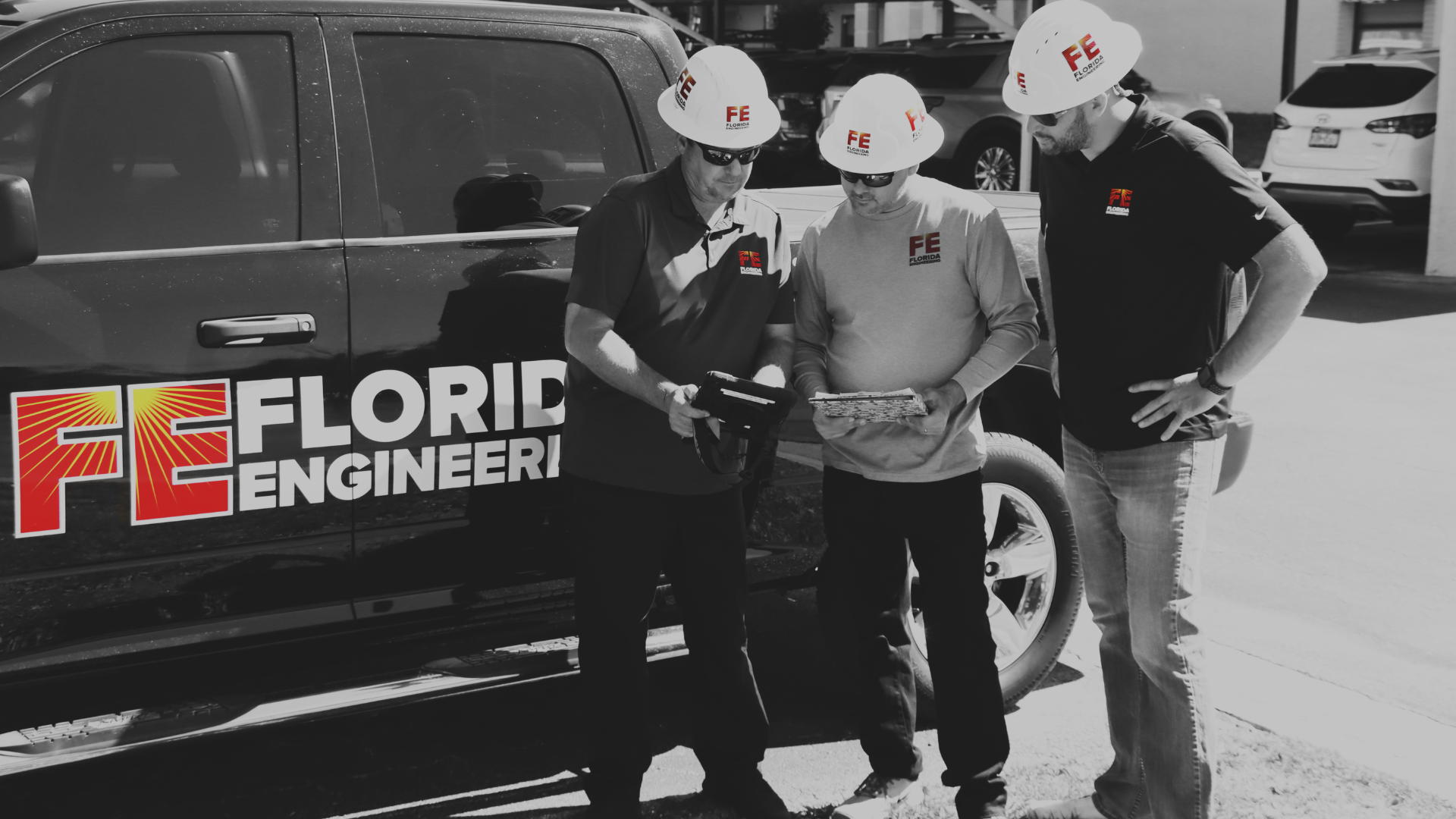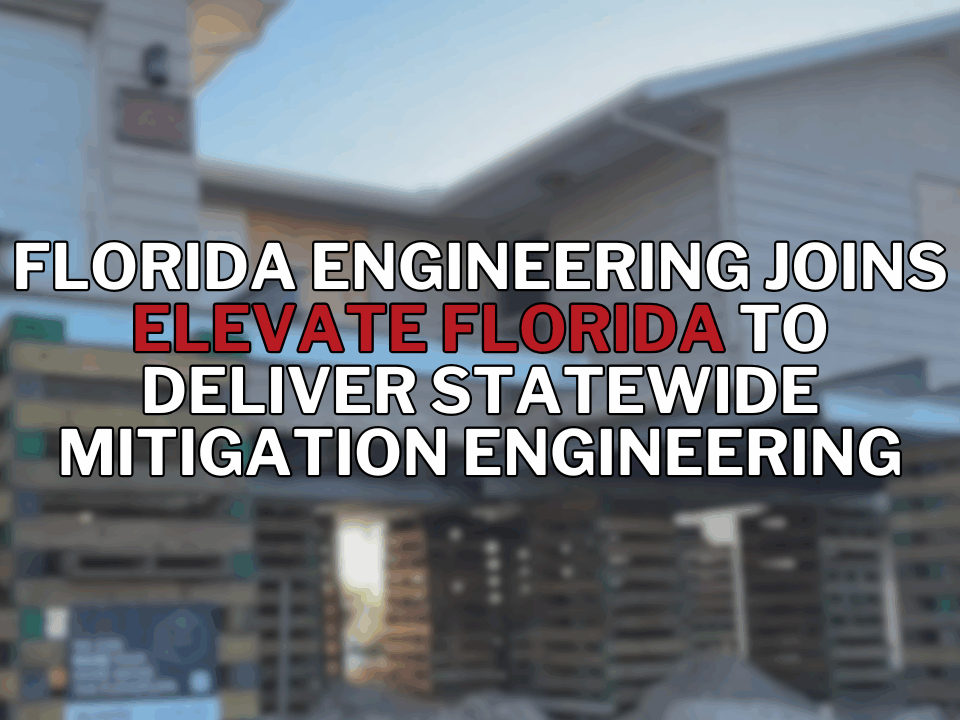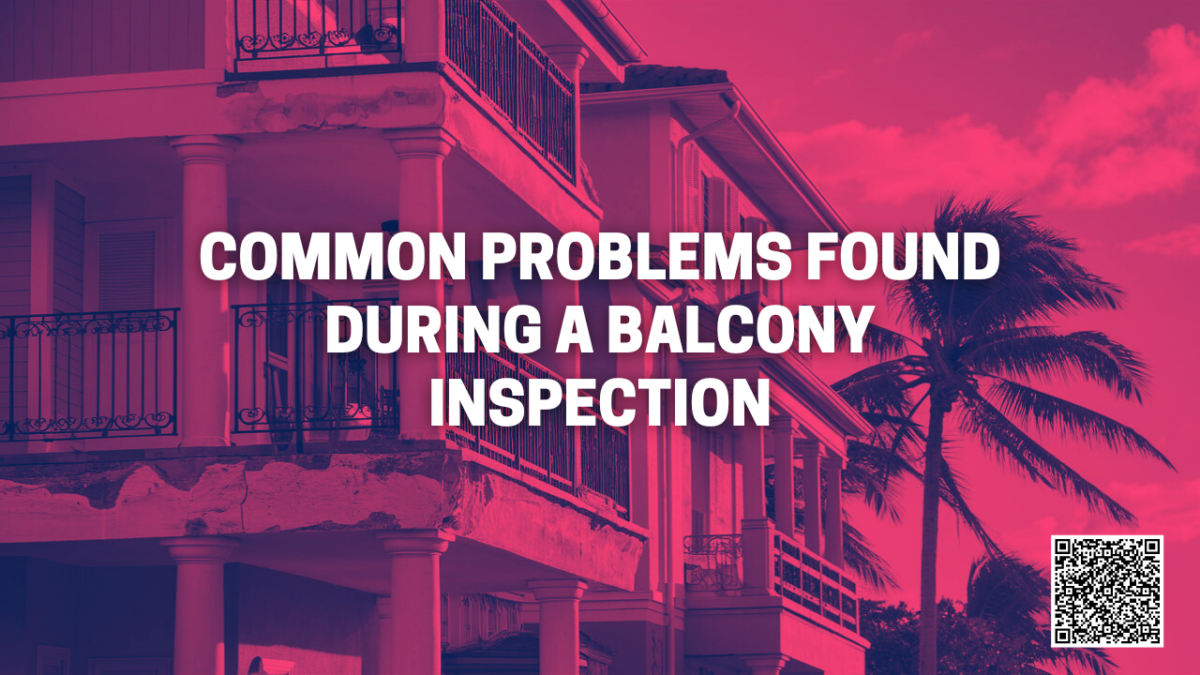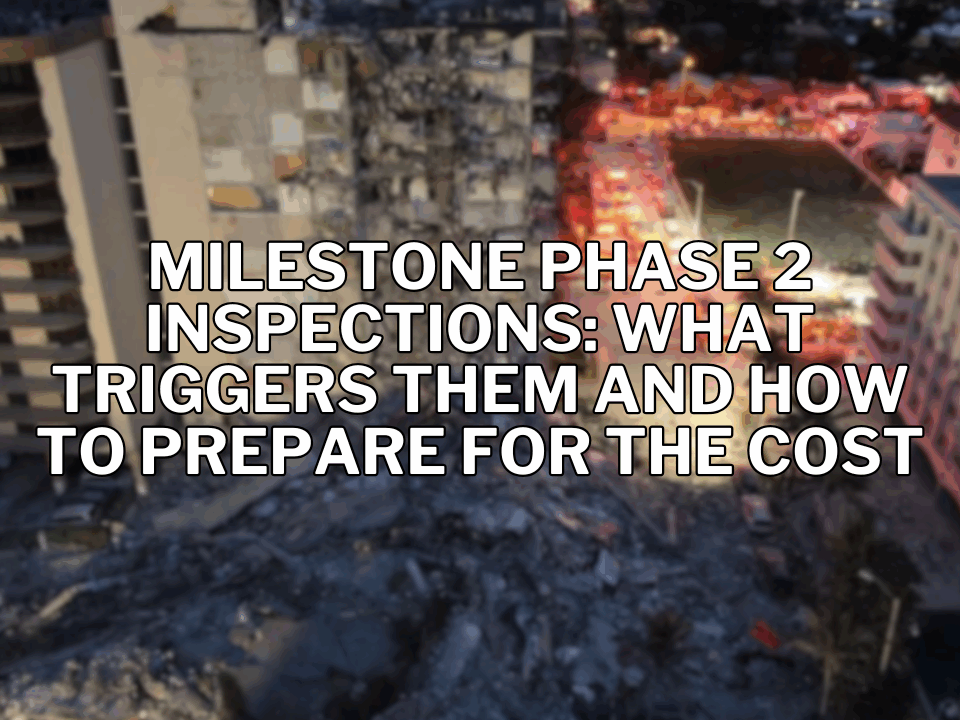Balcony inspections are essential for ensuring the safety and structural integrity of buildings. In Florida, these inspections are mandated every three years for buildings three stories or higher. During these inspections, licensed professionals check for a variety of issues that could compromise the safety and usability of balconies. This article explores some of the most common problems found during balcony inspections and the implications of these findings.
Structural Deterioration
Cracks and Spalling: One of the most frequent issues inspectors encounter is cracks in the concrete or masonry. These cracks can lead to spalling, where pieces of concrete flake off and expose the steel reinforcement bars (rebar). Spalling can weaken the balcony’s structure and pose a serious safety risk.
Corrosion of Reinforcement Bars: Exposure to moisture and air can cause the steel rebar within the concrete to rust and corrode. Corroded rebar expands, leading to further cracking and spalling of the concrete, significantly compromising the structural integrity of the balcony.
Water Damage
Inadequate Waterproofing: Poor or deteriorated waterproofing is a common problem. When waterproofing materials fail, water can seep into the concrete, leading to rust, mold, and structural damage.
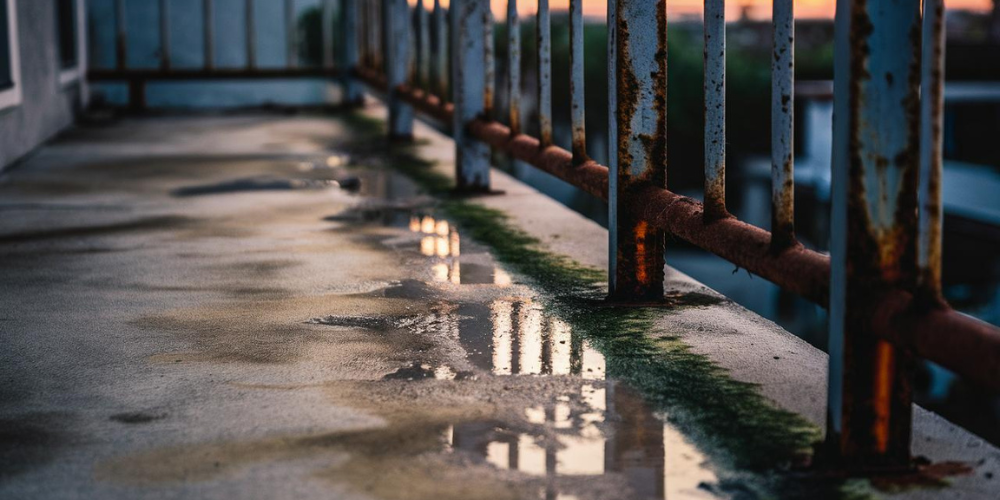
Drainage Issues: Improper drainage systems can cause water to pool on the balcony, increasing the risk of leaks and water damage to both the balcony and the building’s interior.
Railing Failures
Loose or Damaged Railings: Railings are a critical safety feature of any balcony. Inspections often reveal railings that are loose, corroded, or improperly installed. These issues can lead to railing failure, posing a significant fall hazard.

Non-compliant Railing Height and Spacing: Railings that do not meet the required height or spacing standards can also be a common problem. Proper height and spacing are essential to prevent falls and ensure the safety of occupants.
Material Degradation
Wood Rot and Decay: For balconies constructed with wood, rot and decay are common issues. Wood is susceptible to moisture and pest damage, which can weaken the structure over time. Inspectors often find signs of rot, termite damage, and fungal growth in wooden balconies.
Metal Fatigue and Rust: Metal components, including railings and supports, can suffer from fatigue and rust. Rust weakens the metal, making it less able to support weight and resist impact, which is crucial for maintaining balcony safety.
Design and Construction Flaws
Improper Load Distribution: Some balconies suffer from design flaws that result in improper load distribution. This can cause excessive stress on certain parts of the structure, leading to cracks and potential failure.
Inadequate Support Structures: Inspectors often find that some balconies lack the necessary support structures, such as sufficient beams and columns. This inadequacy can cause the balcony to sag or collapse under weight.
Implications of Common Problems
Safety Risks: The most immediate concern with any balcony issue is safety. Structural weaknesses, railing failures, and water damage all pose significant risks to the safety of residents and visitors.
Costly Repairs: Addressing these common problems often requires extensive repairs, which can be costly. Regular inspections help identify issues early, allowing for timely repairs that are generally less expensive than major reconstruction projects.
Legal and Compliance Issues: Failure to comply with balcony inspection requirements and address identified problems can lead to fines, legal liabilities, and increased insurance premiums. Ensuring that balconies are regularly inspected and maintained helps property owners stay compliant with state laws and regulations.
Conclusion
Regular balcony inspections are crucial for identifying and addressing common problems that can compromise the safety and structural integrity of balconies. By staying vigilant and proactive in maintaining these structures, property owners can ensure the safety of their occupants, avoid costly repairs, and comply with legal requirements. For a more detailed guide on balcony inspections, visit Florida Engineering’s comprehensive guide.
Contact Us – The Balcony Inspection Experts Near Me – Florida’s Balcony Inspection Experts
- Phone: 941-391-5980
- Email: contact@fleng.com
- Address: 4161 Tamiami Trail, Suite 101, Port Charlotte, FL 33952
Connect With Us
Related Services
- Milestone Inspections
- Energy Calculation Services
- 25,30,40,50,60 Year Recertifications
- Pool Engineering Services
- Turnover Inspections
[This above text is for information purposes only and does not constitute engineering or legal advice. Please consult a professional engineer and licensed attorney for any specific answers to your questions about balcony inspections and the legal obligations balcony inspections entail.]

